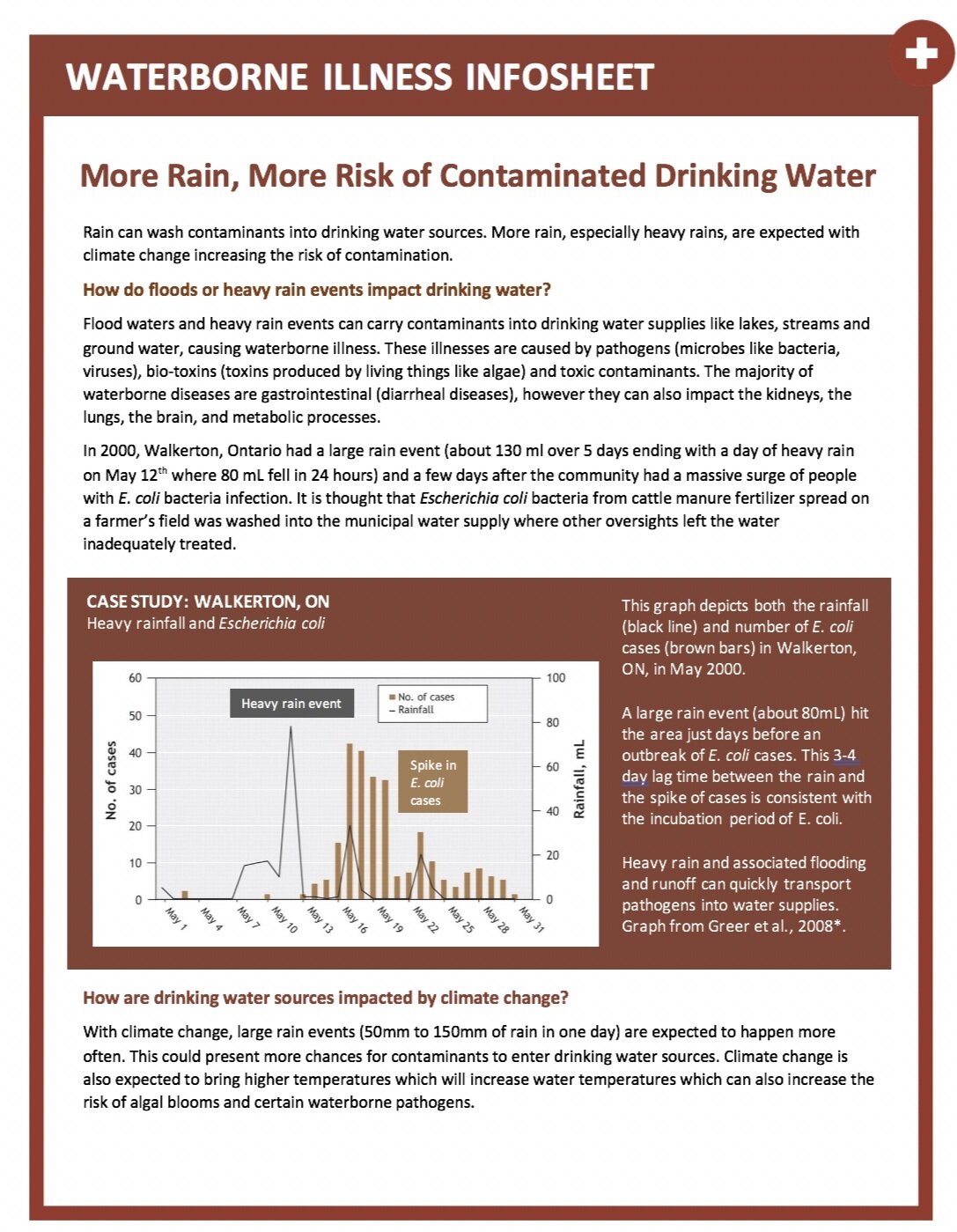Climate change can directly and indirectly impact human health.
Higher temperatures and more heatwaves may lead to heat-related and respiratory illnesses and spoilage of harvested food. Increase in plant productivity could lead to more pollen and allergies. Animals carriers like deer ticks surviving further north may increase the human exposure to diseases such as Lyme disease. Heavy rains can lead to flooding, flushing contaminants and bacteria into drinking water and increasing the chance of mould in houses. The stressors brought on by climate change such as disease, trouble in harvesting traditional foods and more fires and flooding with evacuations can take a toll on a person’s mental health.
What can you and your community do?
support cultural activities
recognize & prevent mold growth in homes
protect yourself from sun & heat
make a community plan for weather events
get support from health services
monitor for heat and heatwaves
monitor air quality
monitor for ticks & mosquitoes and prevent bites
designate a refuge centre











